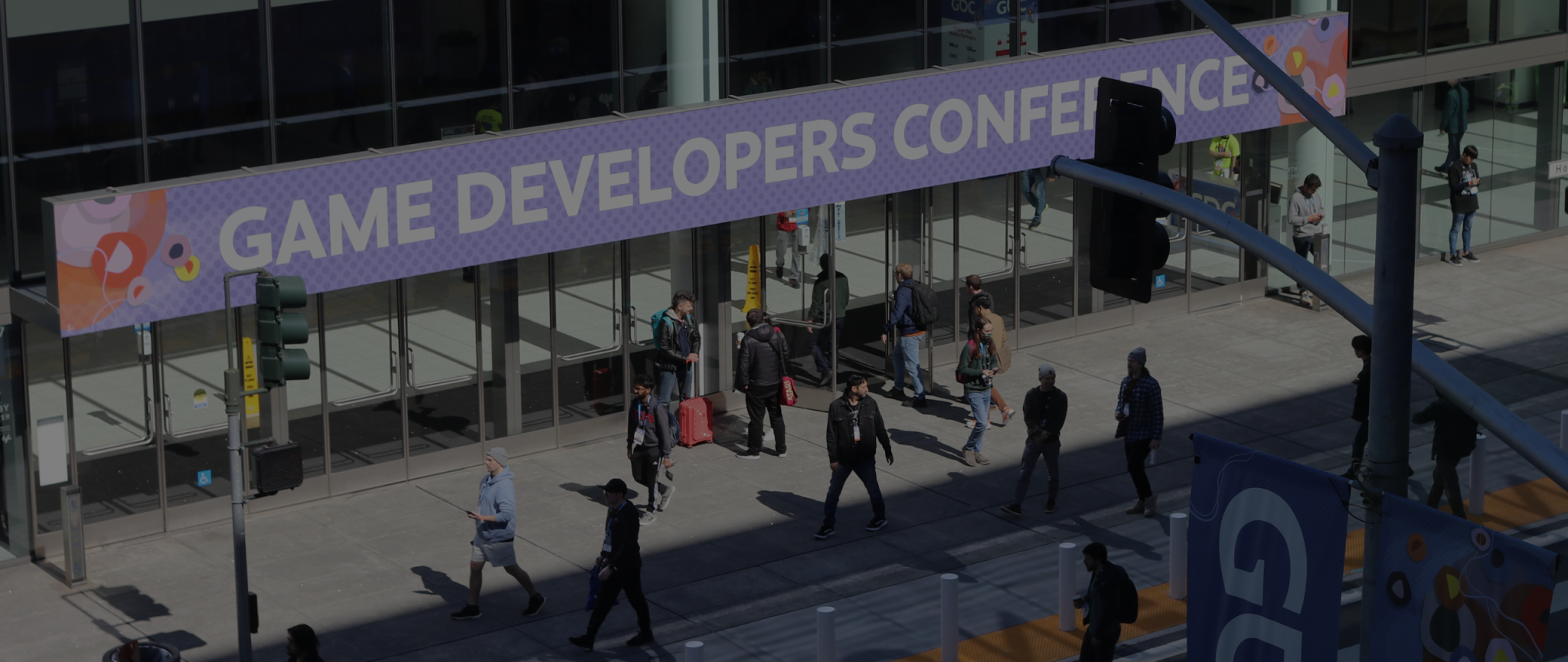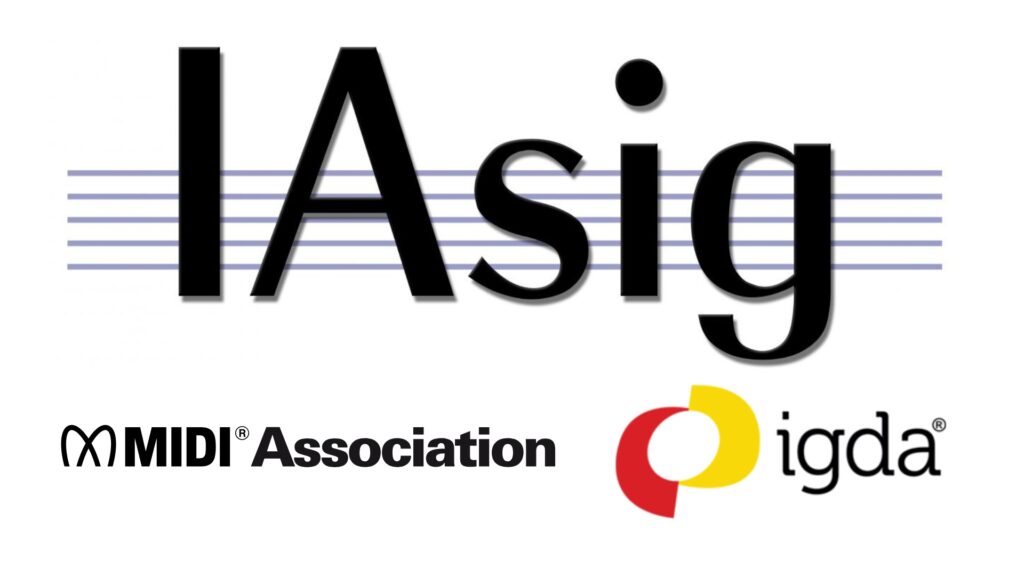Roles and Specializations for Game Audio Professionals

The Interactive Audio Special Interest Group (IASIG) was formed in 1994 as a special interest group of The MIDI Association to allow developers of audio software, hardware, and content to exchange ideas about improving the state of the art in interactive audio.
In the beginning, IASIG activities focused primarily on influencing hardware and software design, as well as leveraging the combined skills of the audio community to make better tools. The IASIG has been influential in the development of audio standards, features, and APIs for desktop and mobile platforms (operating systems) and has helped numerous hardware companies define their directions for the future. In recent years the IASIG membership has grown to include educators, whose contributions to the group are evident in this post.
This post is based on a document created in 2011 and we decided to focus on the roles and specialization in game audio as they have not changed as dramatically as some of the tools that have seen significant changes in the last 15 years.
Primary Authors (in alphabetical order): Karen Collins (University of Waterloo), Ken Felton (SCEA), Brad Fuller (Sonaural Studios), Templar Hankinson (Firelight Technologies), Stephen Harwood (NYU Steinhardt), Kurt Heiden (IASIG Steering Committee), Steve Horowitz (ASIG Steering Committee Chair), David Javelosa (Santa Monica College), Robbie Kazandjian (Soundboy Ltd), Jim Rippie (Invisible Industries), Michael Sweet (Berklee College of Music), Richard Stevens (Leeds Metropolitan University), Mike Worth (Westchester University of Pennsylvania, Drexel University), Ufuk Önen (Bilkent University).
There are a wide variety of roles related to sound and music within the games industry. The industry is fast changing and each company has their own methods, job titles, and terminology and so it would be impossible to list every possibility here. It is hoped that this list of the most commonly advertised positions will help the reader to understand the requirements for these positions.
Sound Design Positions
Sound design positions can encompass a wide variety of skills, and increasingly these positions are becoming more specialized in larger companies. It is recommended that students wishing to obtain positions described in this section undertake the Sound Design specialization, as well as specialize further in their fourth year. In addition, programming skills and asset management skills are particularly valued.
- Implementer -responsible for wiring up assets to objects, events, states, parameters, and more. An in-depth understanding of audio middleware as well as spreadsheet and database software is necessary.
- Recording Engineer –specializes in recording sounds in a studio or on location. They have understanding of microphones and placement, pre-amps, acoustics as it relates to achieving good quality recordings, and creating recordings that can subsequently be utilized further down the chain.
- Foley Engineer – A Recording Engineer who specializes in recording sounds that are made by character interactions. Examples are footsteps, movement, object interactions, etc.
- Field Recordist – specializes in recording sounds on location, typically for the purpose of use when creating sound effects and ambiences.
- Mixer – takes finished sound assets and mixes the game and cinematics for final delivery.
- Sound Designer –creates the actual sound file assets implemented into the game engine. They often work from a spotting list and schedule.
- Sound Event Designer – works very closely with the design group to define the events and states to which the dialogue system will respond to. These events typically provide content for the voiceover recording scripts.
- Procedural or Technical Sound Designer – designs the granular or particle type sound effects recombinant playback system that reacts to various parameters in real-time. They may or may not create the sounds themselves.
- Asset Provider – There are a lot of freelancers who are now paid to simply provide assets. This is also often reflected internally within larger companies where one person’s role may be to simply create and provide sounds, separate from another role which specifically deals with integration.
Music Positions
There are a variety of music-based positions within the industry. In addition to undertaking traditional music training, we have included courses for interactive media.
- Composer – responsible for writing musical score for the game.
- Orchestrator – works with the composer to create arrangements/orchestrations suitable for live musicians to perform/record.
- Music Preparation/Copyist – creates performance scores for musicians based upon the master orchestrations. This typically also includes copying, proof-reading, binding, and library duties of the recording sessions.
- Music Editor – responsible for editing music to the requirements of the music system.
- Implementer -attaches music to events and objects within the game.
- Musician – Responsible for performing the music for recording.
- Music Supervisor – oversees all music production for the game and possibly provides the aesthetic vision.
- Note Tracker – Creates MIDI note maps for music-based puzzles and games.
Voice/Dialog and Localization Positions
It is recommended that students wishing to specialize in voice/dialog undertake the sound design track and take many electives in voice, theatre, and communication.
- Dialog Event Designer – works intimately with the design team to define the events and states that the in-game speech system will respond to, the outcome of which will feed content for the voiceover recording scripts.
- Character Profiler – creates the character bios and often the audition reading scripts. It‘s a quick task that may or may not be teamed up with the writers or design team
- VO Actors –supplies voiceover performances for one or more character in a game
- VO Director – directs voice actors and game designers in order to coax the best possible performances for use in a game. This role may also encompass recording and processing (see Dialog Processor).
- VO Editor – edits raw voice recordings and uses the director‘s notes in order to provide selected takes.
- Dialog Lead / Coordinator – coordinates all dialog work, knows the speech system in extreme detail. This is often a task for the Dialog Event Designer.
- Dialog Processor – performs creative processing, adjusts levels, and EQs edited voice in order to ‘finalize’ the voice set.
- Casting Director – responsible for finding, auditioning, assessing, and hiring actors, both for voice and motion capture. They may also be involved in the negotiating of rates and logistics of getting actors where they need to be.
- Localization Coordinator / Producer – works with licensees and other studios that provide translations and localized recordings of dialog. They have non-audio responsibilities, too, such as written in-game text.
- Localization Asset Manager – tracks voice assets and their status, responsible for managing the database for all who need information about those assets.
Management Positions
Management positions are generally garnered from being promoted from within a company after years of experience. Nevertheless, it is beneficial to the student wishing to enter these positions to undertake a sound design specialization, in addition to courses in business, project management, and human resources.
- Project Manager – oversees the entire game project and will interact with the Audio Lead in order to ensure the audio team has their needs met.
- Audio Lead / Director – oversees all audio aspects of a given game project. Responsibilities include overseeing all assets, as well as defining the schedule.
- Audio Producer / Associate Producer – acts as liaison between the producers and audio team for the game. Typically, responsibilities include schedule and logistics management as well as aesthetic decisions.
- Director of Sound – in charge of the entire audio division within a game company.
- Technical Audio Director – analyzes, defines, and informs teams about their audio pipeline, including tool choices. This is sometimes a responsibility covered by the Director of Sound.
Programming Positions
The ideal audio programmer should have the skills of a programmer plus an understanding of the special needs of audio, particularly when it comes to real-time processing, compression and CPU management, but also with regards to implementation and audio middleware. In particular, advanced understanding of DSPs and sound synthesis programming is essential.
- Audio Gameplay Programmer – adds the audio engine to the overall game engine, as well as creates and maintains the event and data calls between them. This person supports the audio team members with pipeline issues.
- Audio Tools Programmer – acts as a liaison between the audio team and the programmers in order to provide necessary tools for audio production
- Audio Engine Programmer – develops custom audio engines, or adapts existing audio engines, for the specific needs of the game or company.
Quality Assurance Positions
Audio QA (quality assurance) is usually an entry-level position from which a person branches out into another area of specialization. An audio QA person should, ideally, have a background in sound design.
- Audio Tester – play-tests through the game in order provide feedback to the audio team to ensure a quality soundtrack.
[1] Adapted from Project Bar-B-Q 2008 Report: Lieberman, D., Lewis, J., Kwasneski, J., Brandon, A., Collins, K., Prum, J. and Kastbauer, D. 2008. Group Report: So You Want to Work in Game Audio? http://www.projectbarbq.com/bbq08/bbq08r6.htm
This gives you an idea of how many different opportunities there are for Game Audio careers.
Links to some other resources for Game Audio.



